半世紀以玫瑰崗為家
助學生擺脫盲目競爭 追尋真我價值
_______________________________
五十年前在西班牙登機一刻,范士豪神父對「香港」毫無概念。一心跨越萬里實踐傳道使命,到埗才發現實際職業是位教師。半世紀過去,今天的他稱香港為家,玫瑰崗為家園,最自豪是看見一手栽培的學子找到人生價值,在社會綻放真我光彩。
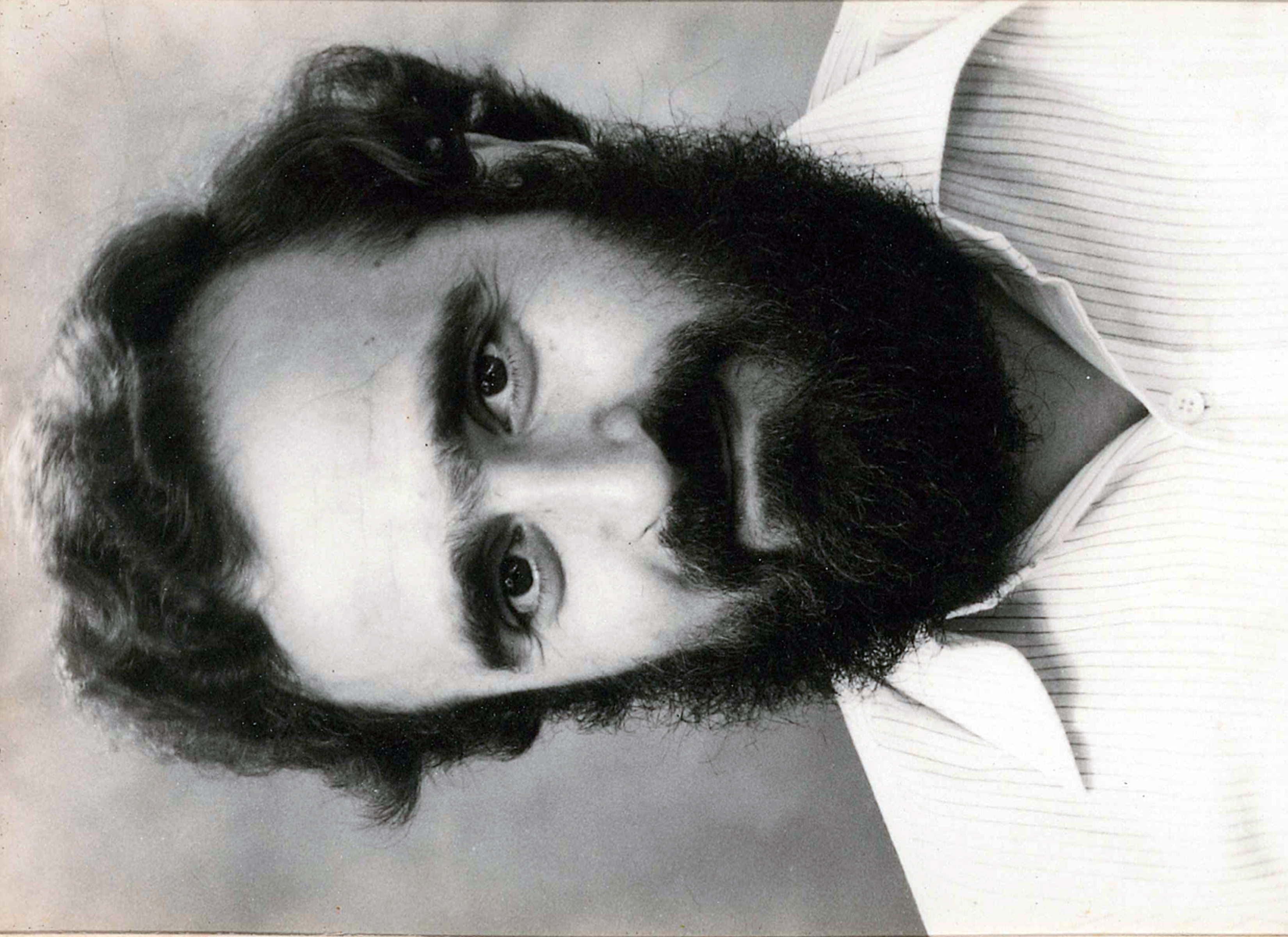
成長於基層大家庭
范神父生於西班牙一個偏遠小村落,父母育有十一名子女。排行第三的他年少時除卻上學、做功課,還要為父母分擔簡單工作幫補家計。他憶述:「想和朋友玩樂就要分配好時間,有時大家會互相幫忙完成各自父母交託的工作,然後一班小朋友在村內自由自在跑來跑去。」
擁抱快樂童年的他坦言自己並非讀書材料,初中時更為學業苦苦掙扎:「中一那年數學考試不合格,要在下學年開始前成功補考才能升班。於是我暑假每天騎單車到七公里外的城鎮補習,好不容易才補考合格。」
也許是因為努力,也許是得到哥哥的用心指導,他後來竟愛上數學並考獲理想成績,成功到馬德里升讀大學,主修哲學及神學。

懷著問號踏上征途
由於在鄉村成長,范神父對基層孩子的需要有所共鳴,大學時期經常服務貧窮家庭的學童。及至25歲畢業,一名前輩建議他到香港發展,他欣然答應:「當時並不知道在學校工作,前輩只說我適合這個崗位,因為我喜歡與青少年相處。」
客機把他由馬德里載到倫敦,經中東和曼谷送達香港啟德機場。「比我早一年加入玫瑰崗的白易遜神父前來接機。那時海底隧道還未建成,我們乘著學校私家車登上汽車渡輪,輾轉來到司徒拔道,所有景象至今仍記憶猶新。」
甫到校他便獲派照顧非華裔班別,主力教授西班牙語。未嚐執教的他很快便發現這是心之所向:「我很喜歡當教師,喜歡和年輕人在一起,見證社會的未來。」
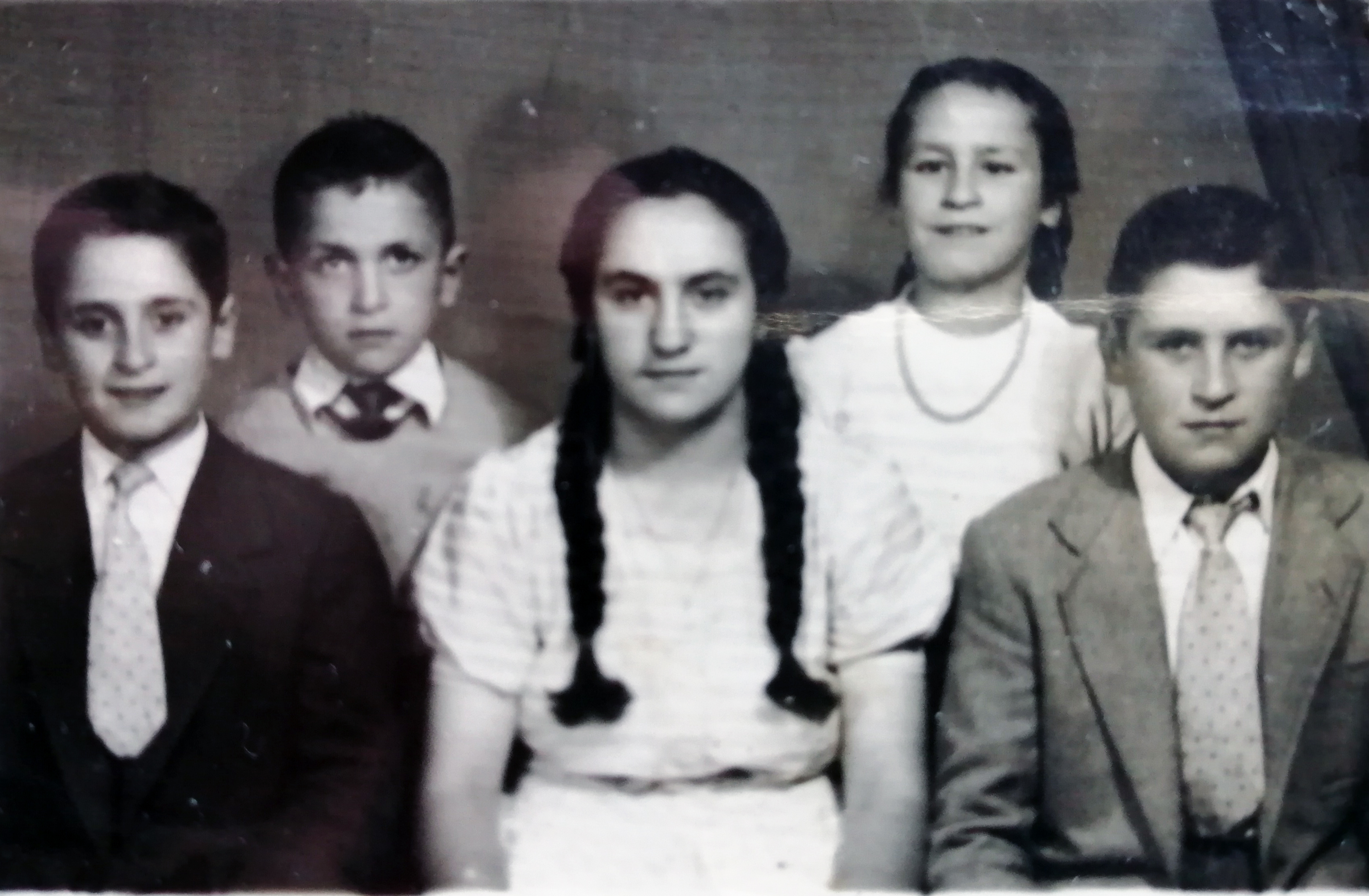
舊生情
他其後兩度赴英進修英語、教學和輔導技巧:「我希望能幫助學生找到自我價值和滿足感。學校規模大,學生多,縱然不是人人成績優異,但正好讓他們明白不必盲目競爭,更重要是找到適合自己的生活方式,從中追尋個人成長,掌握待人接物的竅門。」
這些年他最自豪的是與舊生建立了深厚情誼:「相比其他學校,玫瑰崗舊生尤其團結,他們大力支持母校運作,對學校而言非常寶貴。」
憑多年觀察,他笑言不少學生的歸屬感竟與校巴緊緊扣連:「我當過校巴部主管,有舊生曾力勸學校不可更改校巴設計。縱然灰沉色調並不亮麗,有人甚至批評很醜,但它在街上非常突出,舊生看到時總會感到非常自豪。」
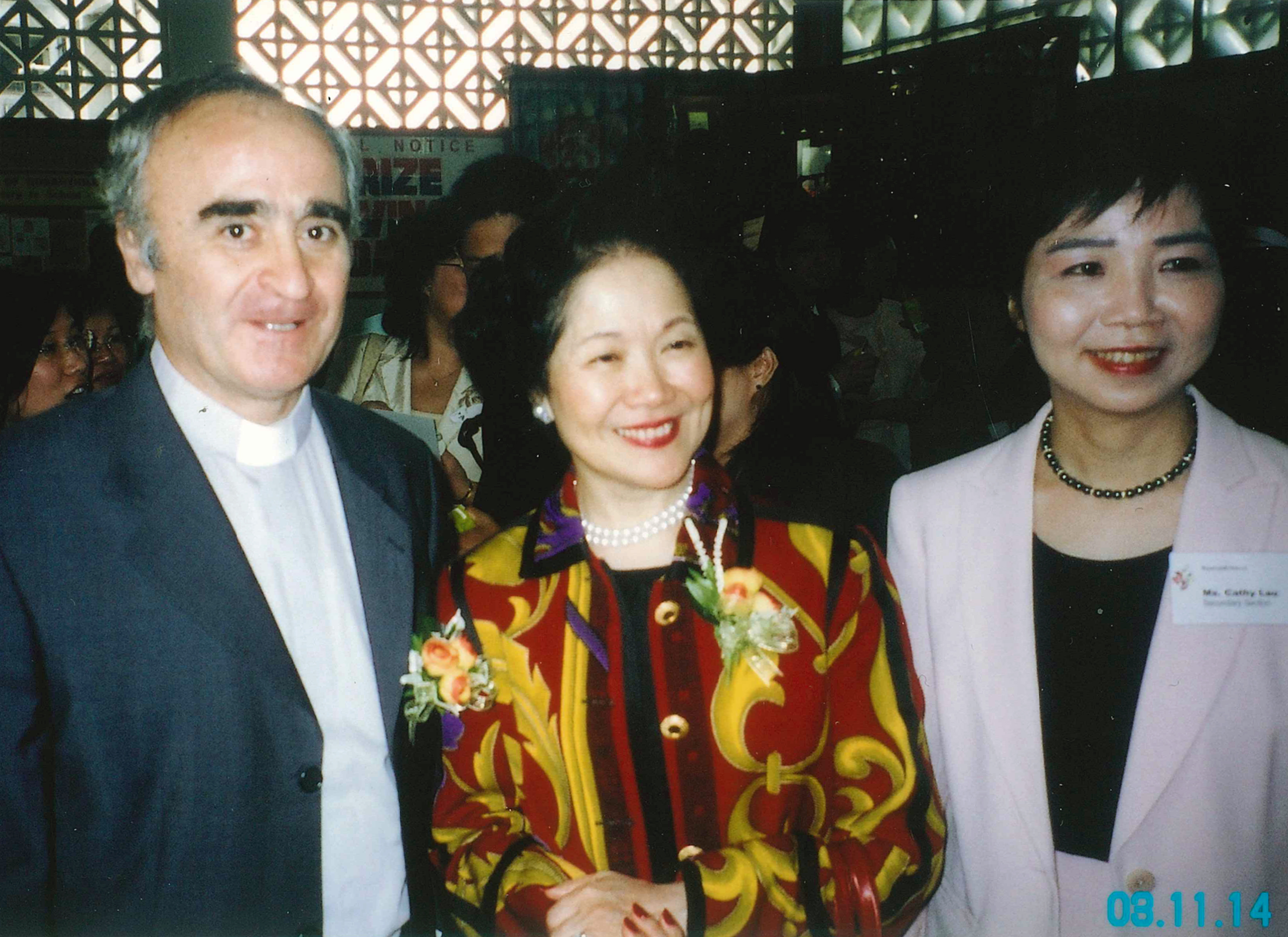
推動變遷 迎接美好明天
范神父自1993年擔任中學部校長和校監,至2006年逐步卸任。多年來主理學校行政,最難忘是九十年代推行縮班安排:「當年小學部一度開至L班,中學部多達56班,但班房只有43個。」土地問題迫在眉睫,學校只好改建禮堂閣樓及徵用實驗室作課室暫用。
校舍人滿為患亦觸發紀律危機:「操場不夠有限,部份學生小息時只能留在班房,長期被困斗室自然易生衝突。」時任校長的他於是決心縮班,總算讓每個班別都擁有理想的班房環境。「不過人數仍然很多,校園活動仍要好好控制,例如老師不能罰中學生留堂,否則與小學部下課時間相撞會擾亂人流控制。」
其時,范神父的另一重大任務是取消中一至中三男女分部安排。他形容當年小學部和高中均男女合班,只有初中屬「夾心階層」,校方要確保初中收生男女比例各佔一半並不容易,所以決心迎難而上:「最初部份同事反對,我們花了不少時間遊說,又要重新配置男女洗手間,最終花了三年才完成計劃。」
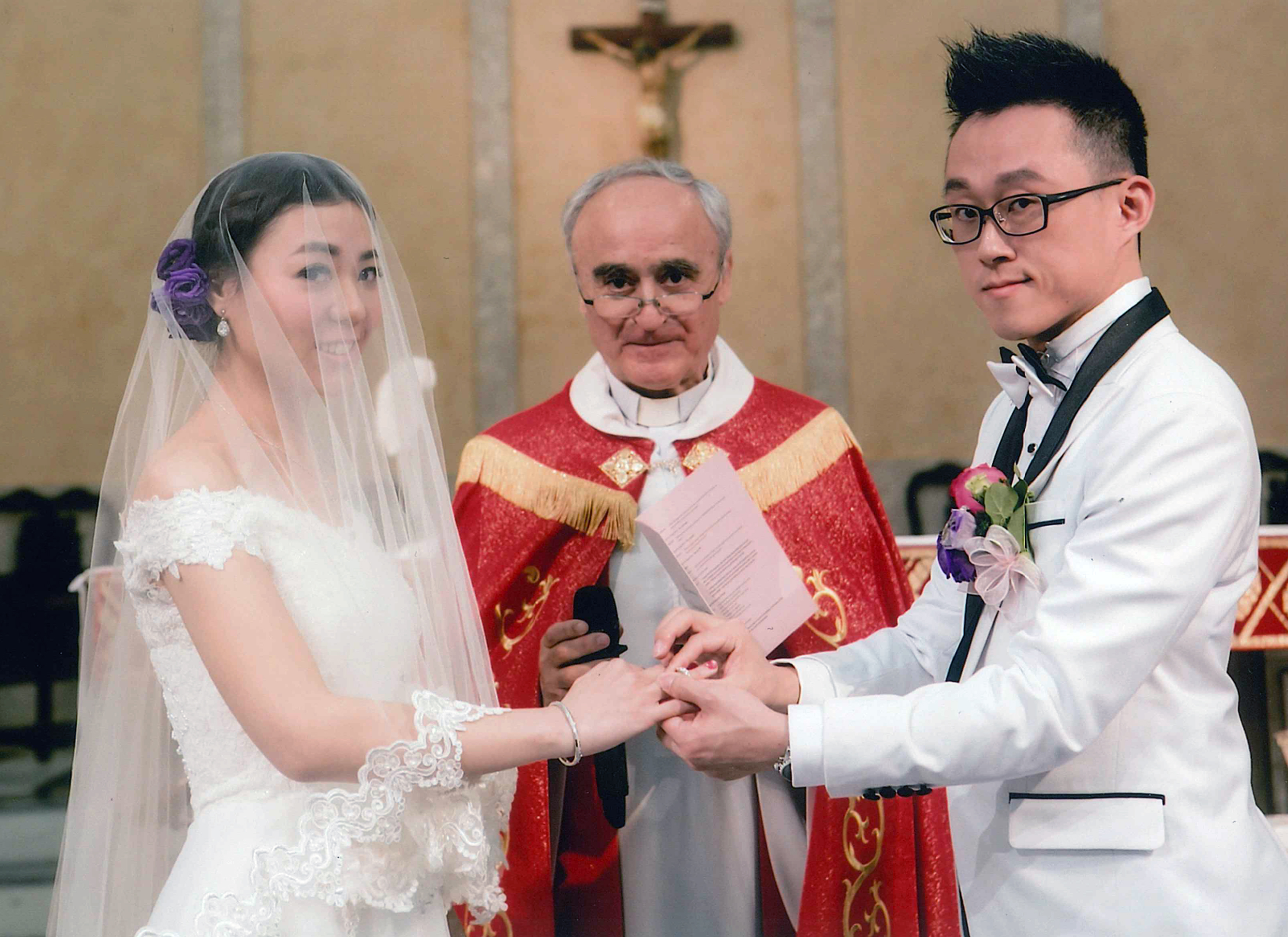
同心擕手 展望明天
半世紀過去,范神父感恩一路走來遇過無數好伙伴。「我的成功是校內很多人共創的成果,有很多很好的老師、科主任一直給予意見,很多前輩導師用心幫我、給我信心。若說這些年間經歷過甚麼挫折與失敗,也往往源於我忽視了某些同事的想法和建議。」驀然回首,人際關係與團隊精神是他一路走來最珍貴的收獲,也是他從事管理的致勝關鍵。
面對疫情,他希望社會重拾復常步伐,讓學童也能好好享受與人相處的時光。「其實疫情加上早前的社會運動,學生已有三年不時停課,社交生活大受影響,相信大家都領會到群體生活、與同學嬉笑怒罵的片段對成長有多重要。希望我們早日還原校園面貌,讓他們能一同學習、成長、呼吸山上的清新空氣。」

Home Away from Home
50 Years of Helping Students Pursue Their True Purpose
50 years ago, when boarding a plane in Spain, Father Francisco De Las Heras had no idea what "Hong Kong" was like. Dedicated to fulfilling his mission as a priest, Father Francisco only realized he was sent to Hong Kong to become a teacher upon landing. Half a century has gone by, Father Francisco now calls Hong Kong his home city, and Rosaryhill School his home. He feels proud when seeing his students achieving higher places in the society after graduation.
Growing up in a big family
Father Francisco was borne in a rural little village in Spain. There were 11 children in the family and he was the third. Apart from going to school and doing homework in the childhood, he also had to help his parents to earn a living by doing some simple jobs. “We have to allocate the time well in order to have more time to play with our friends. Sometimes we helped each other with the tasks assigned by our parents, so that we can go wherever we wanted to in the village afterwards and play together,” he recalls.
The childhood memories of Father Francisco were joyful, but the academic part was not that easy for him. “In the first year of my secondary school, I failed in Mathematics. I needed to get it passed before starting the next school year. Therefore, I cycled 7km every day in the summer vacation to the nearby town to have private classes. Finally, I passed the make-up exam with great effort,” he says.
With his endeavor and the help from his brother, Mathematics turned out became Father Francisco’s favourite subject. He obtained good results and went to the university in Madrid, studying in philosophy and theology.

Embark on a journey into the unknown
Because of his own background growing up in the village, Father Francisco showed empathy to the needs of kids from the deprived areas. He was very keen in the college time to serve the grassroots schoolchildren. As he graduated at the age of 25, a senior suggested he work in Hong Kong and he happily accepted. “I didn’t know I was going to work at a school. My senior simply said that the job would be ideal for me since I could get along with teenagers,” Father Francisco says.
The plane took him from Madrid to London, then through the Middle East and Bangkok to Hong Kong Kai Tak Airport. Father Francisco recalls: “Father Emiliano Perez who joined the school a year earlier than me came picked me up from the airport in the school’s private car. Back then, the construction work of Cross-Harbour Tunnel was not even finished. We boarded on the vehicular ferry to get our car across the Victoria Harbour, and slowly drove to Stubbs Road. I still remember it vividly as if it were yesterday.”
He was soon assigned by the school to look after non-Chinese students and to teach them Spanish. Never been a teacher before, he soon realized this is what he desired. “I enjoy being a teacher. I like interacting with today’s youth to witness how they shape society’s future.”

Connecting with alumni
He later went to the United Kingdom twice for further study to improve his English proficiency and to learn the teaching and tutoring skills. “My goal is to help students find the right path in life, realize their values, and gain satisfaction. As a sizeable school, we have so many students, but not everyone is a top academics achiever. It is an excellent opportunity to let students learn that they do not need to compete with each other blindly. It is more important to find the right path in life, pursue their development at their own pace, and learn to treat others respectfully.
Over the years, he is very proud of the close relationships he has built with the old students. “Compare to other schools, Rosaryhill alumni are especially united. Their strong support for the school’s operation is very precious.”
With years of observation, he is amazed by how students’ sense of belonging is closely tied to the school bus. “I was once in-charge of the school bus operation. An alumnus urged the school to keep the appearance of the school bus, even the dark grey colour does not look cheerful and some even criticized it as ugly. Nonetheless, it is very prominent. Our alumni would feel proud when they see it running on the street.”

Promoting change for a better tomorrow
Father Francisco served as the School Principal and Supervisor of the Secondary Section since 1993, and gradually stepped down from the roles since 2006. During the years overseeing school administration, one of his most unforgettable challenges was the reduction of classes arrangement in the1990s. “Back then some grades in Primary Section had Class L. The whole Secondary Section reached 56 classes in total, but there were only 43 classrooms. To meet the demands, the school had to utilize laboratories and convert part of the attic into temporary classrooms.”
Overcrowding had triggered disciplinary issues. Father Francisco explained: “Since playground space was limited, some classes needed to stay in the classroom during recess. When students were trapped in the same room for too long, conflicts were inevitable.” As the School Principal, Father Francisco decided to gradually reduce the class number so that all classes later could have an ideal classroom environment. “Yet there was still a large number of students, school activities were still limited. To facilitate crowd control, Secondary Section teachers could not use detention as penalty, as the departure time of these penalised student would clash with the finishing time of Primary Section afternoon class.”
Almost at the same period of time, Father Francisco pushed forward another major school reform - the abolition of separating boys and girls between the Form 1 and Form 3 classes. At those age, Primary Section and higher form classes were conducted in co-educated classes, only lower form classes were not. Maintaining a 50/50 ratio of male and female classes during admission was not easy. Father Francisco then decided to push forward the reform but he faced some oppositions from staff. “It took a lot of effort to persuade them. The new class structure also prompted the need to reconstruct the male and female toilets. In the end it took 3 years to complete.”
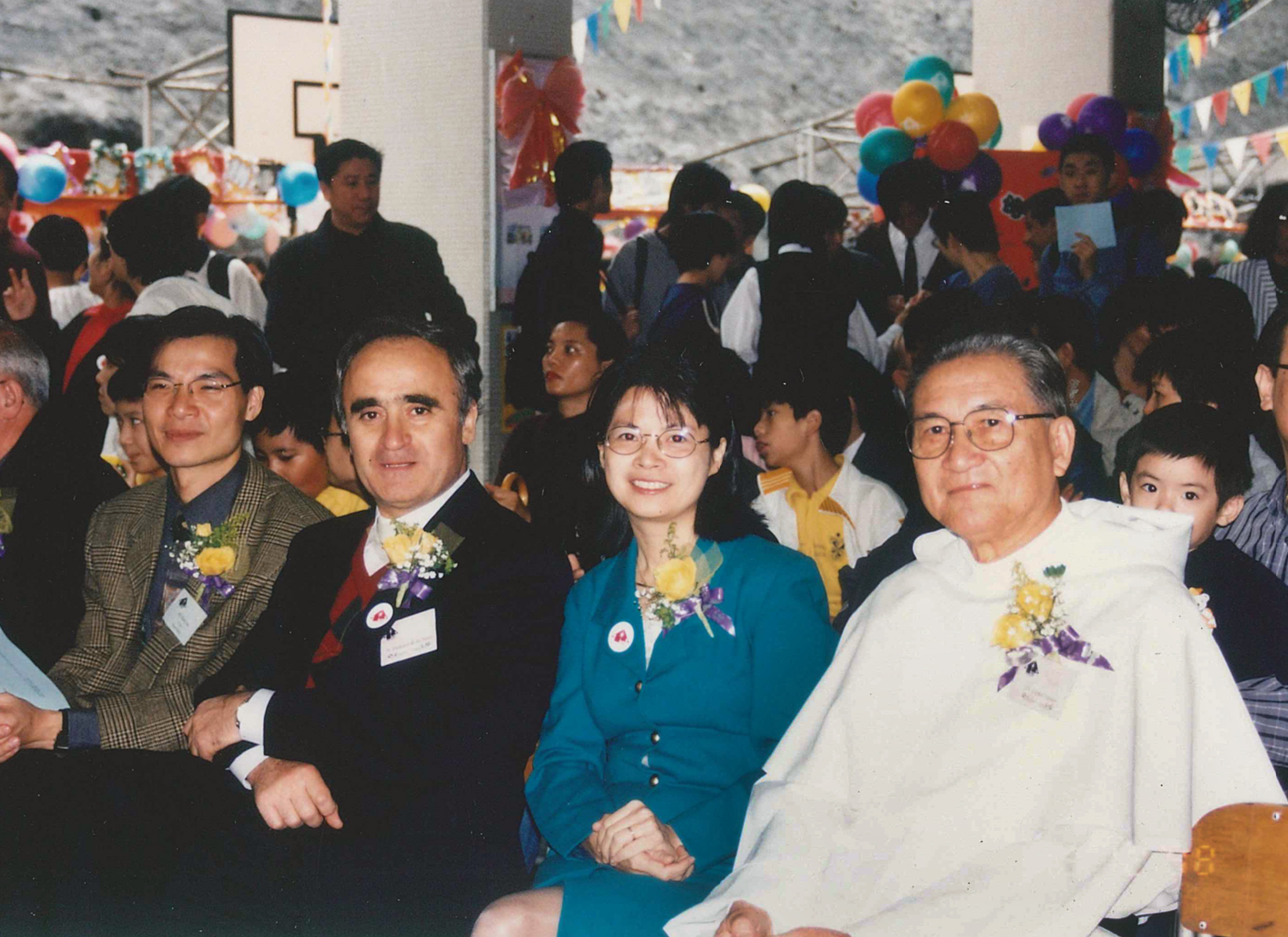
Joining hands and looking forward to tomorrow
Throughout his 50 years of school service, Father Francisco is thankful for all the wonderful people around him. “My success belongs to many people in the school. There are good teachers and panel heads that advised me well. I have good mentors to teach me and give me confidence. For the frustrations and failures that I encountered were often because I have disregarded good opinions and comments from colleagues.” As he looked back, interpersonal relationship and team spirits have been the key to his success in management as well as the most precious reward over the years.
He hopes the society could soon return to normal from the epidemic. The children could then enjoy the time getting along with other people. “In fact, due to the epidemic and the previous social movements, students have been affected by the class suspension for three years. Their social life has been greatly impacted. Everyone truly understands the importance of group life to students' growth. We all hope that students can restore campus life as soon as possible, so that they can have fun together, study together, and breathe the fresh air on the hill together again.”

校內最愛小天地
50年來遊走校園,談起范神父最愛的角落,他首選小聖堂:「那裡有漂亮的裝潢和美麗的回憶。很多學生在聖堂舉行畢業彌撒,象徵他們完成人生的重要階段。我也喜歡在聖堂禱告,察驗主愛的美好。」
他又特別提到學校六樓,即神父宿舍。學生眼中的這片神秘地帶設有小聖堂、圖書館和客飯廳,以往曾開放予高中生參觀,後來為方便神父作息才暫停相關安排。幾十年來,他和各神父在此起居生活,並建立了一個小習慣:「晚飯後我會漫步校園,偶爾來點小運動,一直沿小學部邊陲的小公園走到聖母山,再到學校禮堂,然後往斜坡下行,簡單走一圈,聽聽遠處鬧市的聲音,感受身處城市綠洲的愜意。」

Favourite spot in the school
Spending 50 years in the school, the Little Chapel is Father Francisco’s favourite place. “The aesthetical interior is mesmerizing. The Little Chapel is also full of beautiful memories. Graduation masses are conducted there for graduates. It is a symbol of completing an important stage of life. Praying at the chapel also allows me to feel the love of God.”
He especially mentioned the 6/F of the school, where Fathers and Brothers live. Mysterious to students, 6/F is an area with a little chapel, a small quaint library, living room and dining room. It used to be opened for high form students for scheduled visits, but the arrangement was later suspended so Fathers and Brothers would not be disturbed often. For decades, Father Francisco has been living there with other priests, and over time he has developed a habit. “After dinner, I would go downstairs and stroll around the campus. Occasionally, I would do some light exercises. I would keep walking along the Primary Section’s garden towards the Fatima Shrine, then the school hall, then down the slope. I like to listen to the sounds of the city, and embrace the comfort of being in an urban oasis.”
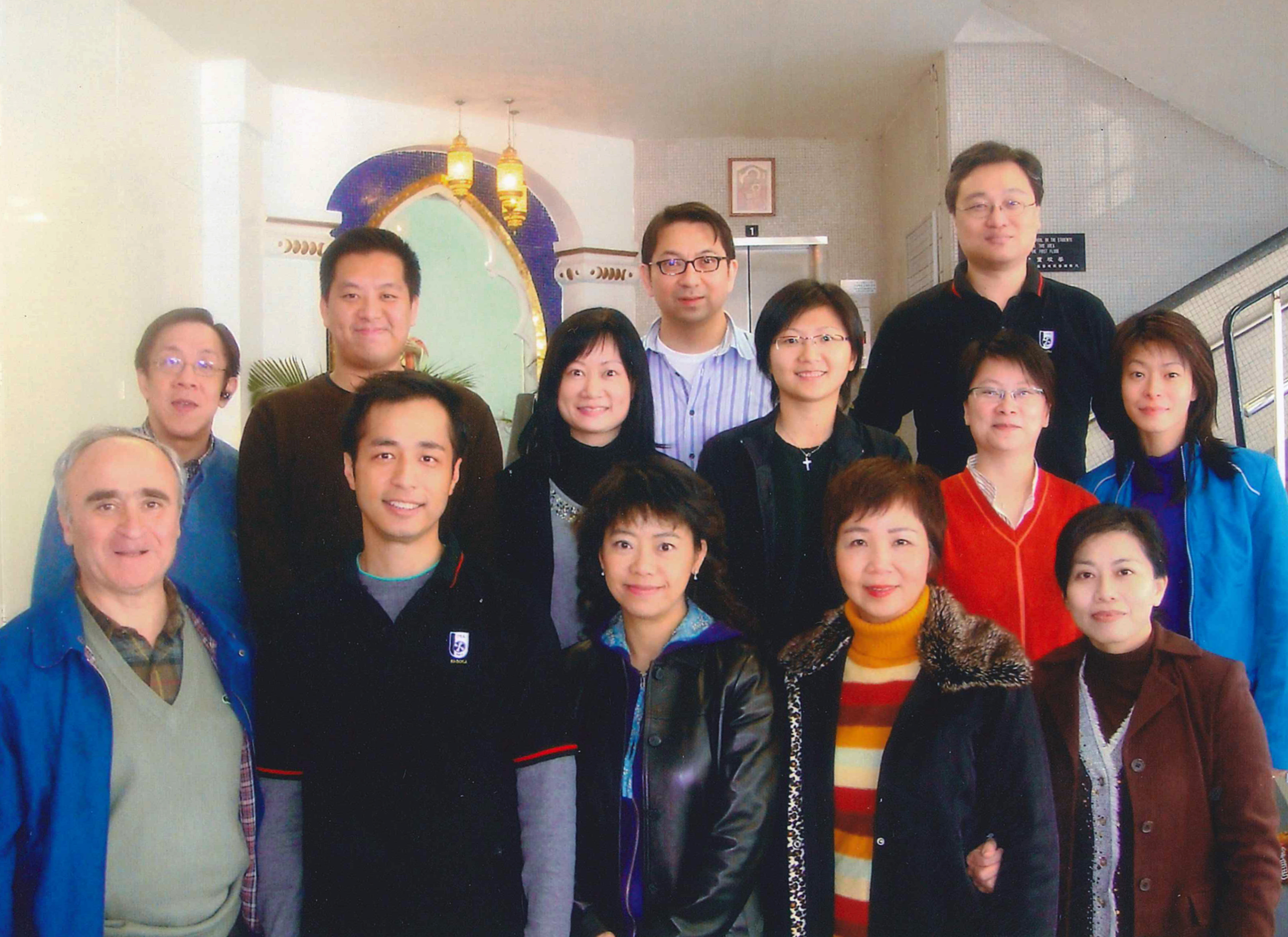
運動好手?
玫瑰崗向來積極推展課外活動,但范神父坦言並不擅長音樂、視覺藝術和體育。作為學校越野賽跑及運動會常客,原來只因他心繫與學生交流:「我只會跑步,但賽跑從未取勝,往往在中游位置。但我喜歡在長跑的時空與學生相處,見到他們開始放慢腳步,我會鼓勵他們一起跑向終點。」
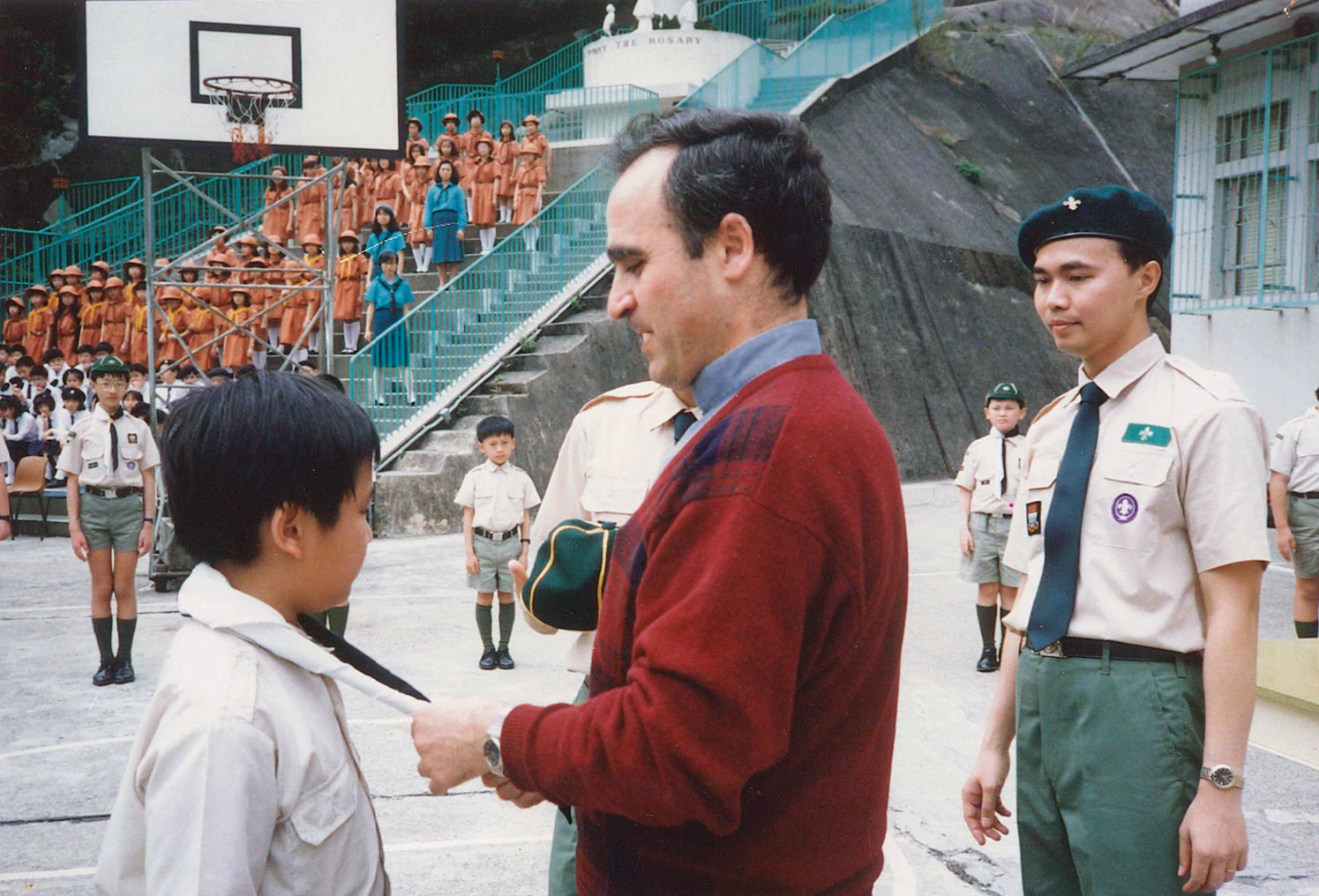
Is he an athlete?
Rosaryhill School has always been dedicated in promoting extracurricular activities. Father Francisco told us that he was never good at music, visual arts or sports. Being a regular participant of school’s Cross Country races and Sports Day, his only reason was to interact with the students. “The only sports I would do is running, but I never won a race. I like to join long-distance race with the students because when I see them slowing down, I could encourage them to run together towards the finishing line.”

思鄉情
獨在異鄉五十載,范神父自覺家在香港多於西班牙,但仍會每年返鄉探望母親:「她今年104歲了。最初來港,我每星期起碼往家裡寄信三次,每當想家就坐到打字機前,畢竟長途電話費太貴了。當年父親也會每周寄信給我。」即使多年來分隔兩地,他與家人的關係至今仍非常緊密。

Nostalgia
Away from his home country for 50 years, Father Francisco feels he belongs to Hong Kong more than Spain, yet he would go back to visit his mother every year. “My mother is 104 years old this year. When I first arrived Hong Kong, I wrote to her at least 3 times a week. International calls were too expensive then, therefore whenever I felt homesick, I would sit in front of the type-writer and start writing letters. My father would also write to me every week.” Even after years of separation, he remains very close to his family.

